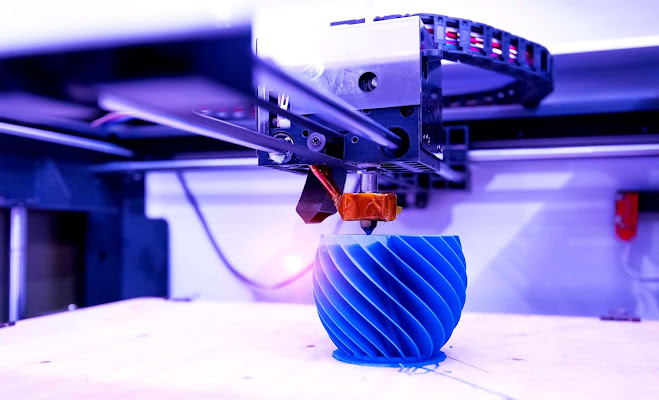The
rapid liquid printing market allows manufacturing various functional components
through additive technologies like binding and depositing several materials
including metals, composites and various polymers at rapid speed using
molecular based inks. The advantages of using liquid inks over filaments
include higher accuracy, complex 3D printed part geometries and ability to
print flexible as well as rigid structures. The growing need for customized
designs along with rapid manufacturing is driving the demand for advanced 3D
printing technologies like rapid liquid printing.
The
Global Rapid Liquid Printing Market is estimated to be valued at US$ 60.7 Mn in 2024 and is expected to
exhibit a CAGR of 22% over the
forecast period 2024 To 2031.
Key Takeaways
Key players operating in the
Rapid
Liquid Printing Market Demand are 3D Systems, Inc., Stratasys ,
EnvisionTEC, ExOne , Rapid Liquid Print Company, EOS GmbH, Optomec, Inc.,
Dassault Systèmes, Materialise , Autodesk Inc., Carbon, Inc. , Asiga, Nexa3D ,
HP Development Company, L.P., Meltio3D. The major players are investing in the
development of molecular based inks to enhance the print quality, material
properties and productivity.
The growing demand for customized and personalized electronic products is
driving the demand for additive manufacturing technologies like rapid liquid
printing. Application of rapid liquid printing is increasing in sectors like
healthcare for medical implants and surgical equipment, consumer electronics
for hearing aids and smart wearables and automotive industry for functional
prototyping.
Global expansion of rapid liquid printing market is supported by proliferating
number of 3D printing service bureaus and growing R&D investments by
governments for development of sophisticated additive technologies. North
America currently dominates the rapid liquid printing market due to strong
presence of key players and increasing adoption in aerospace & defense
sector for prototyping applications. However, Asia Pacific region is expected
to exhibit fastest growth over forecast period supported by low-cost
manufacturing and growing investment in additive technologies by Chinese
manufacturers.
Market key trends
Use of Molecular based inks formulated using engineered nanoparticles of
metals, ceramics and polymers are allowing rapid liquid printing technology to
achieve finer print resolution, enhanced material properties and broader
material spectrum for 3D printing. Nanotechnology incorporated molecular inks
has potential to transform rapid printing for fabricating electronics, living
tissues, functional materials and devices.
Porter's Analysis
Threat of new entrants: The rapid liquid printing technology is still nascent
and capital intensive which pose a barrier for new players to enter the market.
Bargaining
power of buyers: Buyers have moderate bargaining power as there are many
vendors providing rapid liquid printing solutions.
Bargaining
power of suppliers: Suppliers have moderate bargaining power due to availability
of substitutes and suppliers are not indispensable.
Threat
of new substitutes: Threat from substitutes is low as rapid liquid printing
offers properties that cannot be matched by alternative additive manufacturing
technologies.
Competitive rivalry: The rapid liquid printing
market is still in growing phase with presence of many technology providers
offering specialized solutions.
Geographical Regions
North America accounts for the largest market share currently in terms of value
owing to presence of major players and technology hubs in the region. The
increasing adoption of 3D printing across industries such as healthcare,
automotive, consumer goods is contributing to the growth.
Asia Pacific region is expected to witness the fastest growth during the
forecast period driven by countries like China and India. Factors such as
expanding manufacturing sector, growth of application industries and government
initiatives to promote additive manufacturing will support the demand




Comments
Post a Comment